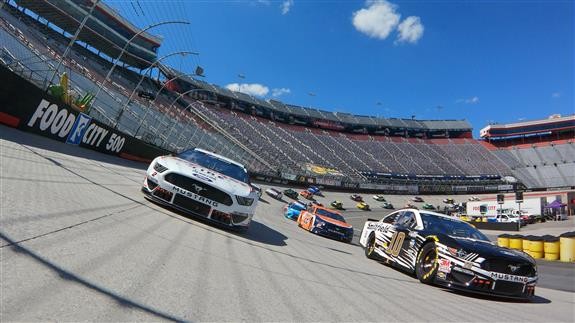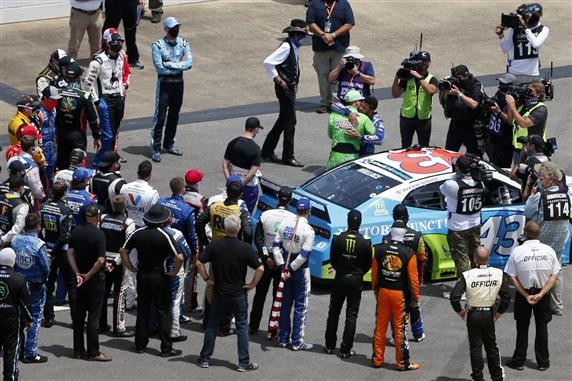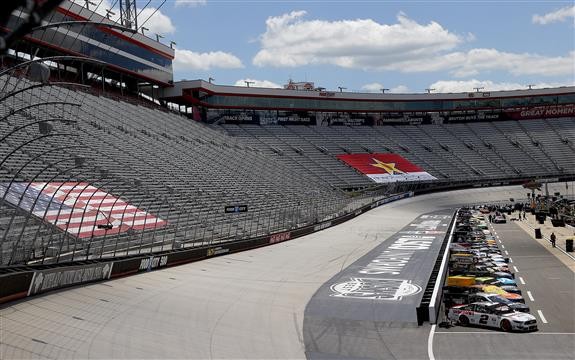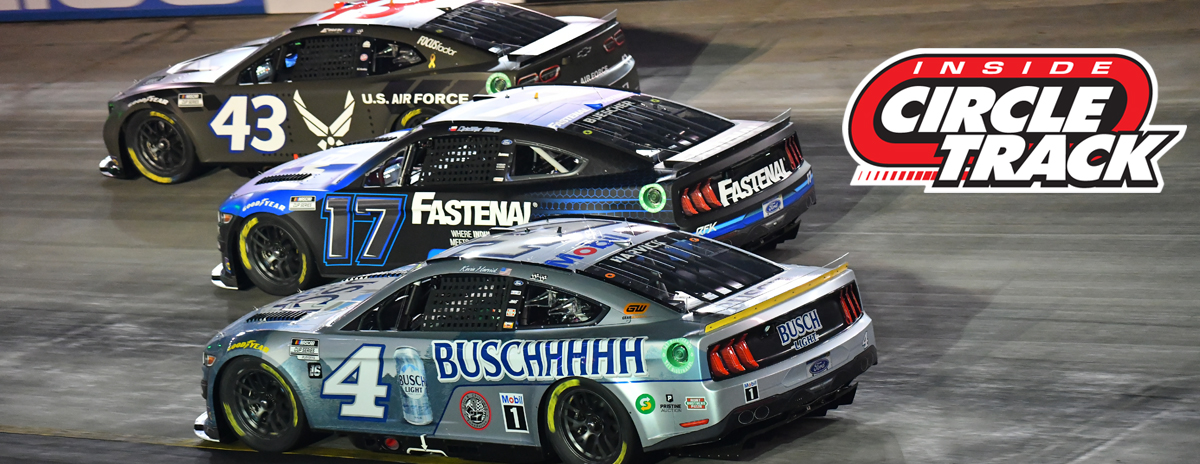As the end of the year approaches many have grown fond of saying they cannot wait for 2020 to end as if issues such as coronavirus, racial tensions, political divide, and general discontent are going to magically go away when the clock strikes midnight and the calendar turns to January 1st. Our society has faced some major issues during the past year and virtually all of those problems will remain beyond the current year and beyond the presidential inauguration that will take place shortly after the New Year.
On a much less important scale, NASCAR has also been faced with some significant hurdles in 2020 with some of those topics mirroring those of society. And like those of society, some of those topics will remain a part of racing conversations even as the new season begins in Daytona next February.
But one thing is for certain, 2020 has taught us all some lessons. Now the real test comes as we work to apply what we have learned going forward.
Whether it be in society as a whole or in a sport such as NASCAR, old ways have given way to new methods. And in some cases, we may have learned that those new methods might just be better whether we’re in the midst of a pandemic or not. Sometimes, a jarring new reality brings about changes that should have already occurred. Perhaps this is one of those times.
This is not the place to take on big societal issues. Since this a racing site, NASCAR’s new normal is more appropriate here.
So what did the sport learn in 2020?
There are so many things that are having to be rethought that it could take volumes to cover it all. Some of those things are competition related and some may not necessarily revolve around the on-track product itself.

Starting lineups were determined without practice and qualifying(Photo: Getty Images)
One thing we should have already known was that this sport spends too much time with activities leading up to the main event. In some cases there are two days of practice combined with qualifying before the races themselves. With all of the restrictions placed on the numbers of people actually at the track and in the garage and pit areas, we were shown in 2020 that all of that time spent on the track was overkill.
While it would seem logical to grant one short period of time on the track for practice leading into a race, teams do not need to spend multiple days at a particular venue in preparation for an event. If NASCAR wants to find ways to save teams money, one avenue for doing so was presented this year. All of the personnel who have to be accommodated during a three-day weekend come with great expense to those organizations. Obviously, reducing the number of days at the track would significantly reduce the amount of money spent by teams.
As a reporter of dirt racing, I have often wondered how those who participate in that form of the sport can show up and run a few hot laps then go right into qualifying and heat races while NASCAR requires multiple practice sessions that each last for 45 minutes or more to prepare for a 400 or 500-mile race which will allow plenty of time for in-race adjustments.
Please also consider reading “Jonathan Davenport on the development of a new race car“
Along with practice, qualifying was almost entirely shelved following the sport’s return from the imposed shutdowns. Time-trials have been a tradition essentially since the very beginning of racing, so to suggest that they be permanently removed from event weekends would bring about a major change in the way races are conducted. However, this season did show that the practice of qualifying is not one that is essential. Perhaps changes in the way qualifying is done, such as on the same day as the race, could be implemented.
We also learned that different series can run on the same day, including one of the two lower tours attached to the NASCAR Cup Series. Midweek races are, in fact, possible. Shorter races, double headers, and more road courses will likely be a part of the racing landscape in the near future.

Drivers and crew members gathered around the car of Bubba Wallace at Talladega(Photo: Getty Images)
Even some controversial issues that have outlived their time were addressed during this highly unusual season. NASCAR issued a ban on the Confederate flag and delivered significant penalties for figures within the sport who used inappropriate words or who misbehaved on social media. And in a tremendous show of unity, drivers and crew members pushed the car of African-American driver Bubba Wallace to the front of the grid when it was first believed that a noose had been found in his garage stall at Talladega. No sport’s sanctioning body can change the minds of those who follow it, but they can remove the appearance of endorsement.
But of all the things that were either learned anew or reaffirmed during 2020, the most important was the assurance that fans matter. While the on-track racing product was not really changed by the fact that the grandstands surrounding the speedways were empty, pre and post-race reactions were absolutely impacted by the lack of spectators. Hopefully, the limitations on the numbers of fans who can attend races will soon be coming to an end.

NASCAR returned in May with no fans(Photo: Getty Images)
2020 indeed was a year of change. This year taught us numerous lessons we should have already known, be it in NASCAR or society as a whole.
Richard Allen is a member of the National Motorsports Press Association
Respond to this piece on Twitter –> @RichardAllenIDR
or on Facebook –> InsideCircleTrack/Facebook
